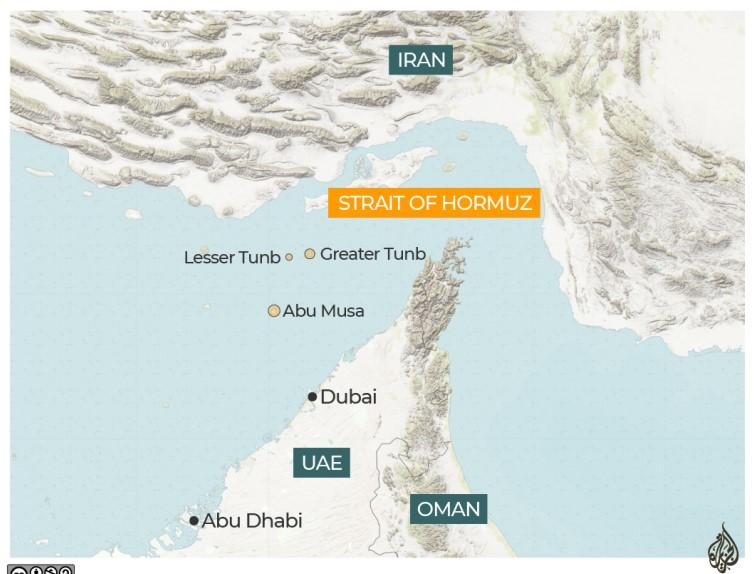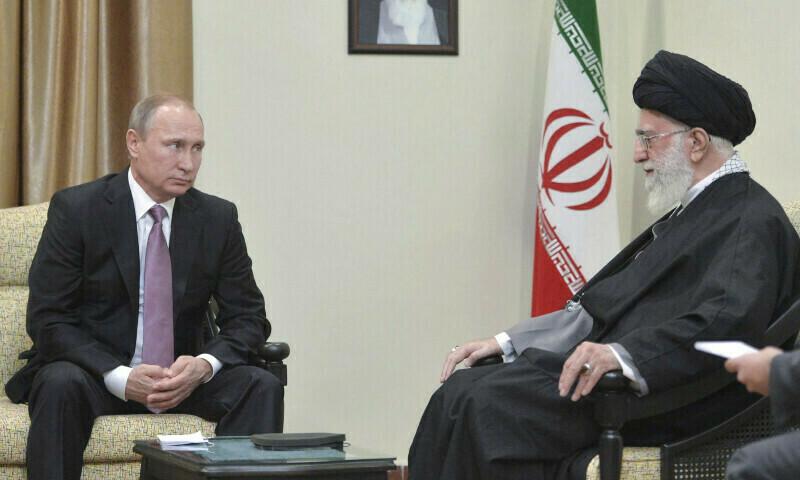How does the Iran-UAE island dispute complicate regional diplomacy? Carving out a new overseas agenda
On December 24, Iran summoned the Russian envoy to Tehran after Moscow signed another joint statement with Arab nations calling for negotiations over three disputed islands that the United Arab Emirates (UAE) claims as its own.
Moreover, Iran’s Foreign Ministry stated that Tehran will not show “the slightest hesitation in maintaining its territorial integrity.” In the last two years, the UAE and Iran’s unresolved 52-year-old territorial dispute over three islands near the mouth of the Strait of Hormuz heated up.
As such, exacerbated tensions over these islands — Greater and Lesser Tunbs and Abu Musa — will likely complicate the Emirati-Iranian rapprochement and regional diplomacy. However, the parties appear disposed to prevent this tension from spiralling out of control. Both countries want to maintain stability in the Persian Gulf.
The three islands have been administered by Iran since 1971, eight years before the Iranian Revolution, but are claimed by the United Arab Emirates as part of its territory. The territorial dispute has been a key sticking point in Iran-UAE relations over the years, with the two neighbours engaging in verbal duels at international forums on numerous occasions.

The islands are also strategically valuable to both sides due to their location near the Strait of Hormuz. Whichever country controls Greater and Lesser Tunbs and Abu Musa can dominate the sea lanes coming in and out of the Gulf via the Strait of Hormuz. However, Iran's claim to Abu Musa and the Tunbs based on immemorial prescription seems relatively weak.
The barren islands contain little in the way of natural resources. Of the three, only Abu Musa has a civilian population number of around 2,000 people. But the three islands sit near the Strait of Hormuz, the vital sea passage between the Gulf and the open ocean through which around 20 per cent of the world's oil and around 25 per cent of the world's liquified natural gas pass through.
From the strategic point of view, Iran is eager to keep the control over small islands as an additional leverage against the Gulf monarchies and their Western allies in the Persian Gulf. Nevertheless, Iran's long-term isolationism and limited economic options led partner countries like Russia and China to side with the UAE in this dispute.
For example, Iran summoned the Chinese envoy to Tehran over a similar joint statement with Arab nations of the region in December 2022 and also summoned the Russian ambassador in July over an almost identical joint statement. Reportedly, Iranian officials called on Russia to correct its position on the territorial row, though official Moscow did not react.
UAE authorities regularly capitalize on every forum, including the United Nations General Assembly, to challenge the Islamic Republic for its refusal to engage in negotiations over the sovereignty of the three islands, calling them Emirati soil that Iran has occupied.

The UAE has sought to corral additional countries, including Western powers, China and Russia, into supporting its cause against Iran. It has been quite successful, at least in securing diplomatic sympathy in a simmering feud with an increasingly isolated neighbour.
The ruling conservative government in Iran believes that the possible handover of the islands to the UAE will result in additional military buildup of the Western powers threatening Tehran’s maritime boundaries. Indeed, Iran wants to establish deterrence against recent U.S. military deployments in the face of IRGC sabre rattling in the Gulf.
Although regional and non-regional countries urge Abu Dhabi and Tehran to solve the issue through dialogue, Western partners have no leverage over Iran to push it for concessions. Moreover, any possible use of force against Iran in the island dispute may be counter-productive in terms of regional security in light of the raging Israel-Hamas war and renewed activities of Iran's proxy forces.
In this regard, the Iran-UAE standoff would put the recent Iran-Gulf rapprochement under question and trigger a new round of violent regional clashes. Therefore, it is unlikely that the UAE will obtain a harsh rhetoric against Iran in a bid to exert pressure on it or challenge it militarily. However, given the historical background, Iran's conservative elite's stance and the renewed Israel-Palestine conflict will downgrade the importance of the island disputes in the near future.








